Tomato paste is a versatile ingredient that can be used in a variety of culinary creations, one of the most popular being pasta sauce. Pasta sauce made with tomato paste offers a concentrated and rich flavor that enhances the taste of any pasta dish. In this summary, we will explore the advantages of using tomato paste as a pasta sauce, discuss its nutritional benefits, and provide some creative recipe ideas. Tomato paste is a thick and highly concentrated tomato product that is made by cooking down ripe tomatoes until they form a thick paste-like consistency. The process of making tomato paste involves removing the excess water from the tomatoes, which results in a rich and intense flavor. This concentrated flavor makes tomato paste an ideal base for pasta sauces, allowing you to achieve a robust and flavorful sauce without the need for long hours of simmering. One of the key advantages of using tomato paste as a pasta sauce is its convenience. Unlike fresh tomatoes, tomato paste can be stored for extended periods without spoiling. This makes it a pantry staple that is readily available whenever you need to whip up a quick and delicious pasta dish. By using tomato paste, you eliminate the need for chopping and processing fresh tomatoes, saving you both time and effort. Additionally, tomato paste is a cost-effective alternative to using fresh tomatoes as pasta sauce. It is more affordable, especially when it comes to purchasing out-of-season tomatoes. By using tomato paste, you can enjoy the flavor of sun-ripened tomatoes all year round without breaking the bank.
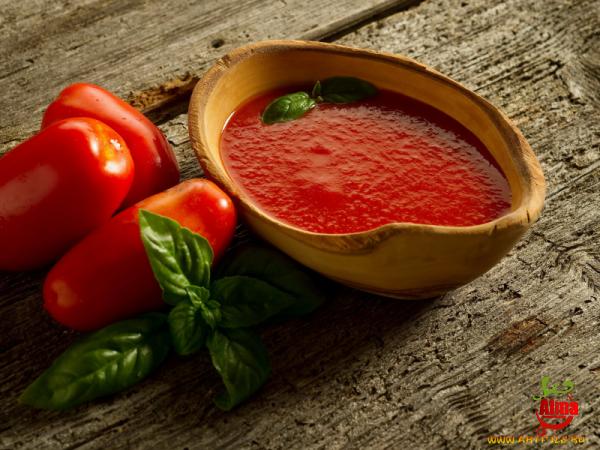
tomato paste
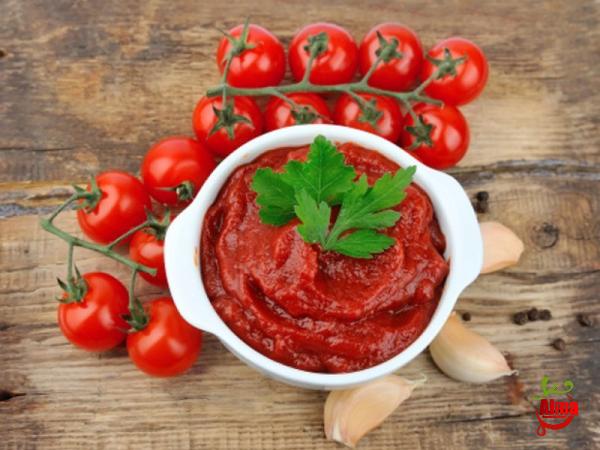 Tomato paste also offers a range of nutritional benefits. It contains high levels of lycopene, a powerful antioxidant that has been linked to various health benefits, including reducing the risk of heart disease and certain types of cancer. Lycopene is more readily absorbed by the body when it is cooked or processed, making tomato paste an excellent source of this beneficial antioxidant. In addition to lycopene, tomato paste is also a good source of vitamins A, C, and K, as well as potassium and dietary fiber. These nutrients contribute to a healthy diet and support overall well-being. When using tomato paste as a pasta sauce, there are endless possibilities for creativity. You can mix it with other ingredients to create a classic marinara sauce, a rich and creamy Alfredo sauce, or a hearty meat sauce. Tomato paste adds depth and intensity of flavor to these sauces, elevating simple dishes to a whole new level. To make a basic tomato paste pasta sauce, you can start by sautéing some onions and garlic in olive oil until they become soft and fragrant. Then, add tomato paste along with some herbs and spices such as oregano, basil, and red pepper flakes. Simmer the sauce for a few minutes to allow the flavors to meld together, and then toss in cooked pasta of your choice. This simple yet delicious recipe can be customized to your taste preferences by adding vegetables, meat, or cheese. For a more indulgent option, you can make a creamy tomato paste pasta sauce by combining tomato paste with heavy cream, grated Parmesan cheese, and butter. This rich and velvety sauce pairs perfectly with pasta such as penne or fettuccine, and can be garnished with fresh basil or parsley for added freshness. In conclusion, tomato paste is an excellent choice for making pasta sauce. Its concentrated flavor, convenience, cost-effectiveness, and numerous nutritional benefits make it a staple ingredient in the kitchen. By using tomato paste, you can easily create delicious and flavorful pasta sauces that will impress your family and friends. Whether you prefer a simple marinara sauce or a rich and creamy Alfredo sauce, tomato paste is the perfect base for your pasta creations.Title: The Business Potential of Tomato Paste as Pasta Sauce
Tomato paste also offers a range of nutritional benefits. It contains high levels of lycopene, a powerful antioxidant that has been linked to various health benefits, including reducing the risk of heart disease and certain types of cancer. Lycopene is more readily absorbed by the body when it is cooked or processed, making tomato paste an excellent source of this beneficial antioxidant. In addition to lycopene, tomato paste is also a good source of vitamins A, C, and K, as well as potassium and dietary fiber. These nutrients contribute to a healthy diet and support overall well-being. When using tomato paste as a pasta sauce, there are endless possibilities for creativity. You can mix it with other ingredients to create a classic marinara sauce, a rich and creamy Alfredo sauce, or a hearty meat sauce. Tomato paste adds depth and intensity of flavor to these sauces, elevating simple dishes to a whole new level. To make a basic tomato paste pasta sauce, you can start by sautéing some onions and garlic in olive oil until they become soft and fragrant. Then, add tomato paste along with some herbs and spices such as oregano, basil, and red pepper flakes. Simmer the sauce for a few minutes to allow the flavors to meld together, and then toss in cooked pasta of your choice. This simple yet delicious recipe can be customized to your taste preferences by adding vegetables, meat, or cheese. For a more indulgent option, you can make a creamy tomato paste pasta sauce by combining tomato paste with heavy cream, grated Parmesan cheese, and butter. This rich and velvety sauce pairs perfectly with pasta such as penne or fettuccine, and can be garnished with fresh basil or parsley for added freshness. In conclusion, tomato paste is an excellent choice for making pasta sauce. Its concentrated flavor, convenience, cost-effectiveness, and numerous nutritional benefits make it a staple ingredient in the kitchen. By using tomato paste, you can easily create delicious and flavorful pasta sauces that will impress your family and friends. Whether you prefer a simple marinara sauce or a rich and creamy Alfredo sauce, tomato paste is the perfect base for your pasta creations.Title: The Business Potential of Tomato Paste as Pasta Sauce
Specifications of tomato paste
 Introduction: Tomato paste is not only a versatile culinary ingredient but also holds significant business potential as a staple ingredient in pasta sauces. In this article, we will delve into the lucrative opportunities that tomato paste presents in the food industry. From discussing market trends and consumer preferences to exploring business strategies and creative applications, we will provide valuable insights for entrepreneurs and existing businesses looking to capitalize on the popularity of tomato paste as a pasta sauce. 1. Market Size and Growth: The global pasta sauce market is projected to grow at a steady pace in the coming years, with tomato-based sauces being the most dominant segment. As consumers become more health-conscious, they seek out healthier and more natural options, making tomato paste an attractive choice for pasta sauce manufacturers. The market potential is further amplified by the growing popularity of global cuisines and the increasing demand for convenience foods. 2. Consumer Preferences: Consumers today value products that embody authenticity, quality ingredients, and natural flavors. Tomato paste, with its concentration of sun-ripened tomatoes and intense taste, aligns with these preferences. By using tomato paste as a base for pasta sauce, businesses can cater to the demand for authentic and flavorful products while ensuring convenience and ease of use for consumers. 3. Product Differentiation: In a competitive marketplace, product differentiation is crucial for businesses to stand out and attract customers. With tomato paste as a base, pasta sauce manufacturers can explore a plethora of flavor combinations and specialty variations. For example, adding fresh herbs, spices, or regional ingredients can create unique and distinctive pasta sauces that set a brand apart from competitors. 4. Private Label Opportunities: As the popularity of pasta sauce made with tomato paste rises, private label opportunities present an attractive avenue for retailers and startups. Manufacturing private label pasta sauce offers the advantage of lower production costs, increased profit margins, and the ability to cater to specific consumer preferences. With proper branding and marketing, private label products have the potential to capture a significant market share.
Introduction: Tomato paste is not only a versatile culinary ingredient but also holds significant business potential as a staple ingredient in pasta sauces. In this article, we will delve into the lucrative opportunities that tomato paste presents in the food industry. From discussing market trends and consumer preferences to exploring business strategies and creative applications, we will provide valuable insights for entrepreneurs and existing businesses looking to capitalize on the popularity of tomato paste as a pasta sauce. 1. Market Size and Growth: The global pasta sauce market is projected to grow at a steady pace in the coming years, with tomato-based sauces being the most dominant segment. As consumers become more health-conscious, they seek out healthier and more natural options, making tomato paste an attractive choice for pasta sauce manufacturers. The market potential is further amplified by the growing popularity of global cuisines and the increasing demand for convenience foods. 2. Consumer Preferences: Consumers today value products that embody authenticity, quality ingredients, and natural flavors. Tomato paste, with its concentration of sun-ripened tomatoes and intense taste, aligns with these preferences. By using tomato paste as a base for pasta sauce, businesses can cater to the demand for authentic and flavorful products while ensuring convenience and ease of use for consumers. 3. Product Differentiation: In a competitive marketplace, product differentiation is crucial for businesses to stand out and attract customers. With tomato paste as a base, pasta sauce manufacturers can explore a plethora of flavor combinations and specialty variations. For example, adding fresh herbs, spices, or regional ingredients can create unique and distinctive pasta sauces that set a brand apart from competitors. 4. Private Label Opportunities: As the popularity of pasta sauce made with tomato paste rises, private label opportunities present an attractive avenue for retailers and startups. Manufacturing private label pasta sauce offers the advantage of lower production costs, increased profit margins, and the ability to cater to specific consumer preferences. With proper branding and marketing, private label products have the potential to capture a significant market share.
buy tomato paste
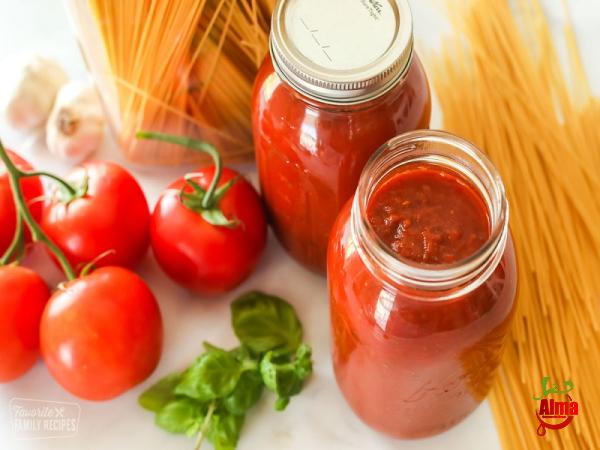 5. Packaging Innovations: Packaging plays a vital role in product appeal and can contribute to the success of pasta sauce brands. Investing in innovative, user-friendly, and eco-friendly packaging solutions can elevate the perceived value of tomato paste-based pasta sauces. For instance, resealable pouches or portion-controlled packaging can enhance convenience while reducing waste, appealing to busy consumers seeking convenient meal solutions. 6. B2B Opportunities: The demand for bulk tomato paste for industrial-scale production creates an opportunity for B2B sales. Pasta sauce manufacturers, food processors, and restaurants often require large quantities of tomato paste on a regular basis. Establishing partnerships with these businesses can lead to long-term contracts and steady revenue streams for tomato paste suppliers. 7. Health and Wellness: With the increasing emphasis on health and wellness, consumers are actively seeking healthier options without compromising taste. Tomato paste, known for its nutritional benefits, can be positioned as a healthier pasta sauce base due to its high antioxidant content and vitamin profile. Businesses can capitalize on this trend by promoting the health benefits of tomato paste and incorporating organic or low-sodium options into their product offerings. 8. Culinary Applications: Tomato paste offers businesses the flexibility to diversify their product portfolio beyond traditional pasta sauces. Entrepreneurs can explore diverse culinary applications such as pizza sauce, soups, stews, and ethnic dishes, thereby expanding their market reach and appealing to a wider customer base. This versatility allows businesses to tap into multiple segments within the food industry. 9. Market Research and Consumer Insights: To succeed in the competitive pasta sauce market, businesses need to conduct comprehensive market research and gain valuable consumer insights. Understanding trends, preferences, and consumption patterns will help businesses tailor their product offerings and marketing strategies to target specific consumer segments effectively. 10. Branding and Marketing Strategies: Successful branding and marketing are essential to gain a competitive edge in the tomato paste pasta sauce market. Businesses should focus on developing a unique brand identity, leveraging storytelling and emphasizing the quality and authenticity of their products. Strategic partnerships with influencers, collaborations with food bloggers, and social media marketing can help generate brand awareness and build customer loyalty. Conclusion: The increasing demand for tomato paste as a pasta sauce presents a wealth of business opportunities for entrepreneurs and existing players in the food industry. By capitalizing on market trends, catering to consumer preferences for authenticity and healthy alternatives, and utilizing innovative branding and marketing strategies, businesses can successfully tap into this lucrative segment. With its versatility, convenience, and nutritional benefits, tomato paste is poised to reshape the pasta sauce market, offering a bright future for enterprising individuals and established companies alike.
5. Packaging Innovations: Packaging plays a vital role in product appeal and can contribute to the success of pasta sauce brands. Investing in innovative, user-friendly, and eco-friendly packaging solutions can elevate the perceived value of tomato paste-based pasta sauces. For instance, resealable pouches or portion-controlled packaging can enhance convenience while reducing waste, appealing to busy consumers seeking convenient meal solutions. 6. B2B Opportunities: The demand for bulk tomato paste for industrial-scale production creates an opportunity for B2B sales. Pasta sauce manufacturers, food processors, and restaurants often require large quantities of tomato paste on a regular basis. Establishing partnerships with these businesses can lead to long-term contracts and steady revenue streams for tomato paste suppliers. 7. Health and Wellness: With the increasing emphasis on health and wellness, consumers are actively seeking healthier options without compromising taste. Tomato paste, known for its nutritional benefits, can be positioned as a healthier pasta sauce base due to its high antioxidant content and vitamin profile. Businesses can capitalize on this trend by promoting the health benefits of tomato paste and incorporating organic or low-sodium options into their product offerings. 8. Culinary Applications: Tomato paste offers businesses the flexibility to diversify their product portfolio beyond traditional pasta sauces. Entrepreneurs can explore diverse culinary applications such as pizza sauce, soups, stews, and ethnic dishes, thereby expanding their market reach and appealing to a wider customer base. This versatility allows businesses to tap into multiple segments within the food industry. 9. Market Research and Consumer Insights: To succeed in the competitive pasta sauce market, businesses need to conduct comprehensive market research and gain valuable consumer insights. Understanding trends, preferences, and consumption patterns will help businesses tailor their product offerings and marketing strategies to target specific consumer segments effectively. 10. Branding and Marketing Strategies: Successful branding and marketing are essential to gain a competitive edge in the tomato paste pasta sauce market. Businesses should focus on developing a unique brand identity, leveraging storytelling and emphasizing the quality and authenticity of their products. Strategic partnerships with influencers, collaborations with food bloggers, and social media marketing can help generate brand awareness and build customer loyalty. Conclusion: The increasing demand for tomato paste as a pasta sauce presents a wealth of business opportunities for entrepreneurs and existing players in the food industry. By capitalizing on market trends, catering to consumer preferences for authenticity and healthy alternatives, and utilizing innovative branding and marketing strategies, businesses can successfully tap into this lucrative segment. With its versatility, convenience, and nutritional benefits, tomato paste is poised to reshape the pasta sauce market, offering a bright future for enterprising individuals and established companies alike.
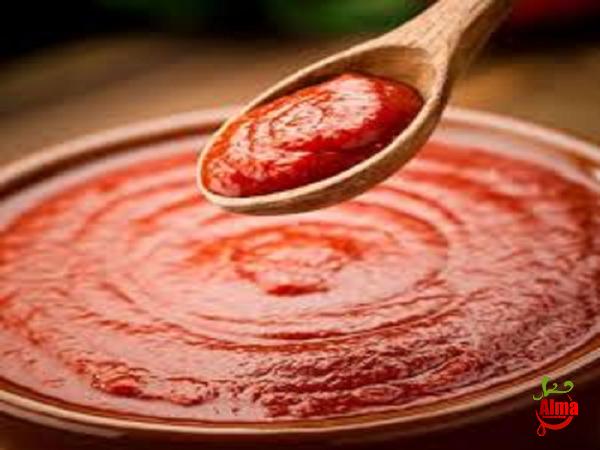
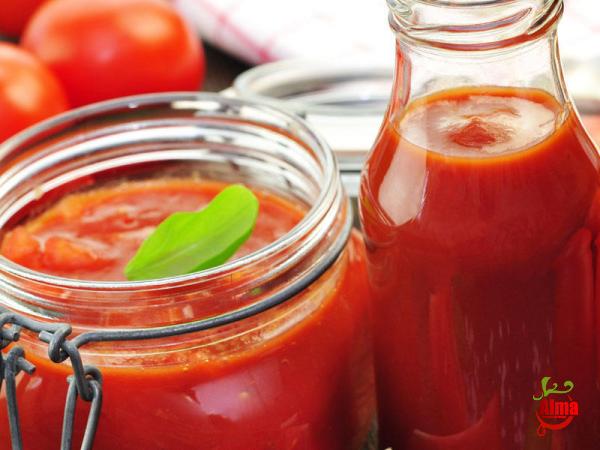
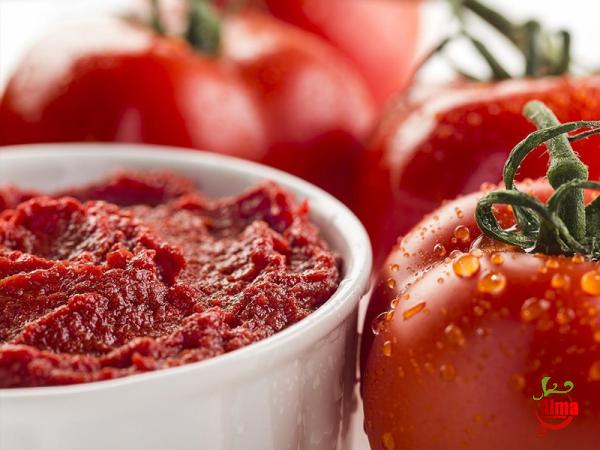
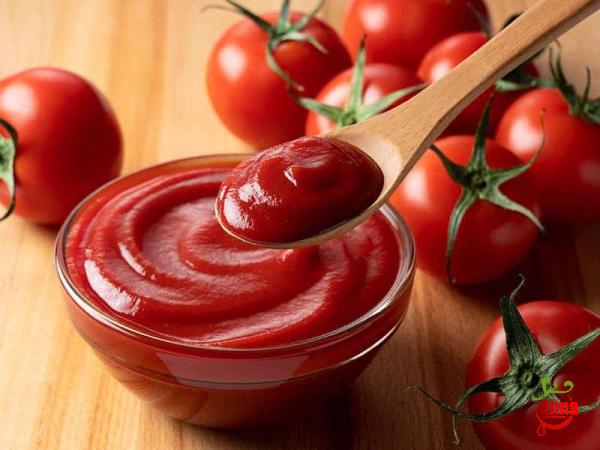



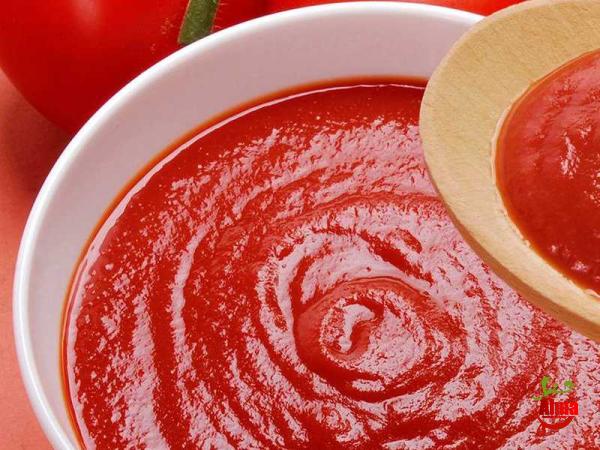
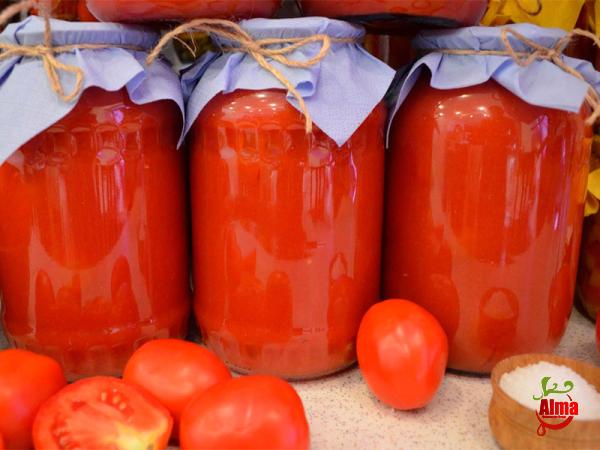
Your comment submitted.